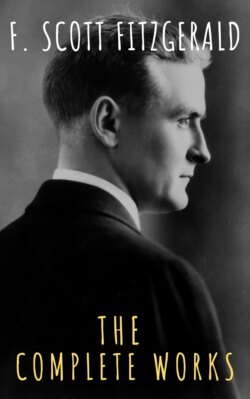Читать книгу The Complete Works of F. Scott Fitzgerald - F. Scott Fitzgerald, The griffin classics - Страница 10
III.
Оглавление“Mr. Carmatle, you will explain this I hope.”
“Certainly,” and drawing up a chair the governor began:
“My son and I served in Forrest’s cavalry during the Civil War, and being on a scouting expedition did not hear of Lee’s surrender at Appomattox until about three months afterwards. As we were riding southward along the Cumberland Pike we met a man riding down the road. Having struck up an acquaintance, as travelers do, we camped together. The next morning the man was gone, together with my son’s old horse and my son’s old uniform, leaving his new horse and new civilian suit instead. We did not know what to make of this, but never suspected who this man was. My son and I separated and I never saw him again. He was bound for his aunt’s in western Maryland and one morning he was shot by some Union soldiers in a barn where he had tried to snatch a minute’s rest on the way. The story was given out to the public that it was Booth that was shot but I knew and the government knew that my innocent son had been shot by mistake and that John Wilkes Booth, the man who had taken his horse and clothes, had escaped. For four years I hunted Booth, but until I heard you mention the initials J. W. B. I had heard no word of him. As it was, when I found him he shot first. I think that his visit to the hall in the Confederate uniform was simply to frighten you away. The fact that your grandfather was a Southern sympathizer probably had protected him all these years. So now, gentlemen, you have heard my story. It rests with you whether this gets no farther than us three here and the government, or whether I shall be proclaimed a murderer and brought to trial.”
“You are as innocent as Booth is guilty,” said I. “My lips shall be forever sealed.”
And we both pressed forward and took him by the hand.
— ◆ —
